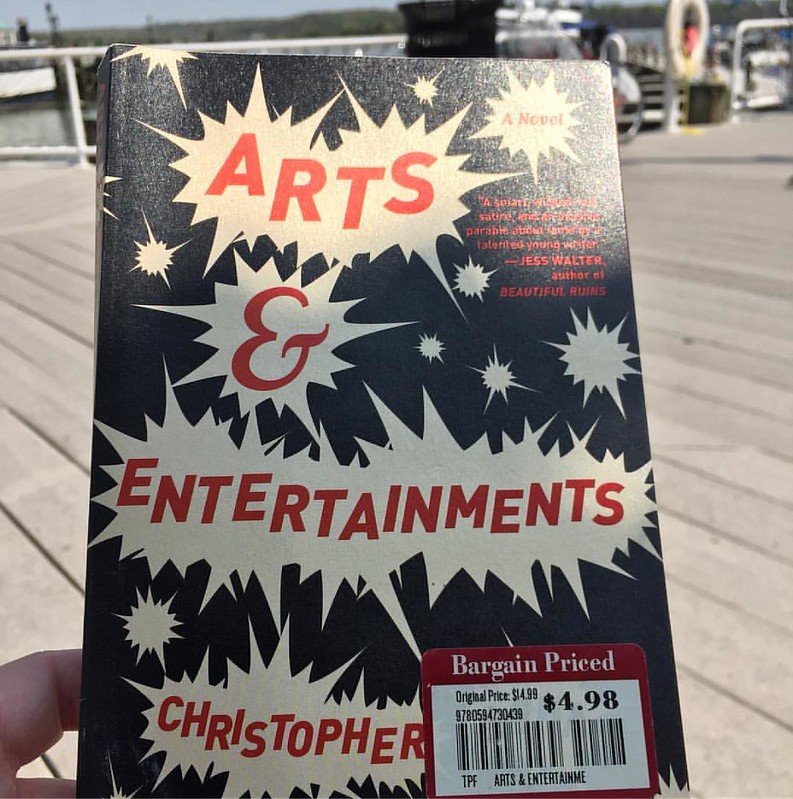
What happens to serendipity in a world without bookstores?
The Barnes and Noble in Bethesda is closing. The last of the great literary superstores, it anchors downtown Bethesda, MD, providing a focus to the community and a convenient rest stop on the Capital Crescent Trail.
Books used to be big business. Downtown DC had several stores much like the leftover Barnes and Noble, from the sprawling Borders on L Street to the bustling Waldenbooks in Union Station. All gone now.
In my novel Don’t Mess Up My Block, a satire of American life in the new millennium, I have my alter ego Esalen McGillicuddy ponder the book business:
Laptop in front of me, I sat in the Borders Cafe. It was an absurd business, even back then. The store was several thousand square feet in a mall packed with luxury retail shops. But rather than selling thousand-dollar blouses or expensive electronics, they made do with $2 cups of coffee and the occasional paperback. Sitting there with a latte, watching the smattering of idlers in the store, it was a business that didn’t make any sense. How’d they pay their rent, much less eke out a profit? It was a leftover from the 90s, from that magical economic era, a dinosaur that had stumbled on into the age of mammals.
I’ll miss shopping at Barnes and Noble for the same reason that I miss reading the newspaper – serendipity. Online shopping is task-oriented – you know what you want and you search for it. Browsing in a good bookstore is about exploration. It’s about luck. It’s about stumbling upon the right book at the right time.
I had a gift card with $5 left on it. I didn’t know what I wanted, so I ended up in the remaindered section of the Bethesda Barnes and Noble, searching through the stacks of marked-down books at the front of the store.
I didn’t care for the cover of Arts & Entertainments but read the blurbs and the first couple pages and was sold. At $4.98.
This funny New York novel by Christopher Beha asks, “How real is reality TV?” The answer: not very. Like with scripted programs, reality characters have arcs – narratives imposed upon them by producers. We like pantomime villains and high drama so that’s what reality TV gives us, whether it’s true or not.
And once you join the reality world, it’s impossible to get out, for you become addicted to fame and money. The only escape is death and, even then, your demise will be used to anchor another story, another narrative arc, another turn of the wheel, your complex existence reduced to a single stereotype, whether that’s hero or heel.
I was thinking of doing a blog series on remaindered books, panning for gold among these leftover titles.
But, like the last Barnes and Noble, even these remnants of the publishing industry are soon to be no more.
People still read – 73% of adults read a book in the last year, most of them in print.
Bethesda will survive the loss of Barnes and Noble. In cities like Washington, we have other options, independent booksellers like Kramerbooks.
But, in most of the country, Barnes and Noble was the only bookstore in town. And it did more than just sell books, too, but provided a safe space for reading groups, online dates and Craigslist transactions. It’s a loss to the community.
No more will readers have the experience of aimless browsing, of searching through stacks of discounted books looking for something you can’t describe until you pull a black comedy out of the pile. The end of Barnes and Noble means the end of serendipity.
In a country enthralled by reality TV, Barnes and Noble is no longer needed. But what about all those remaindered books? Where will they go? To the great pulp mill, destined for recycling as flimsy wrapping paper, their contents unread.





